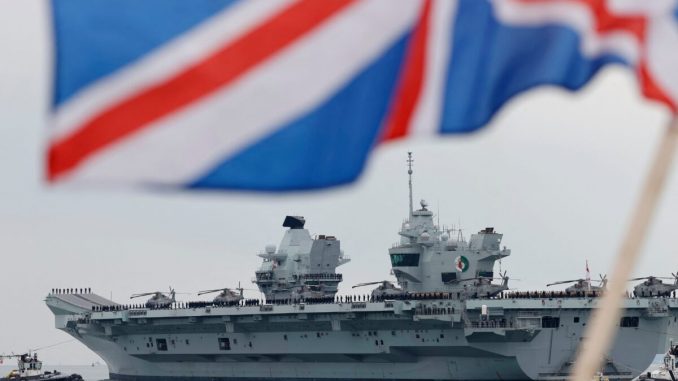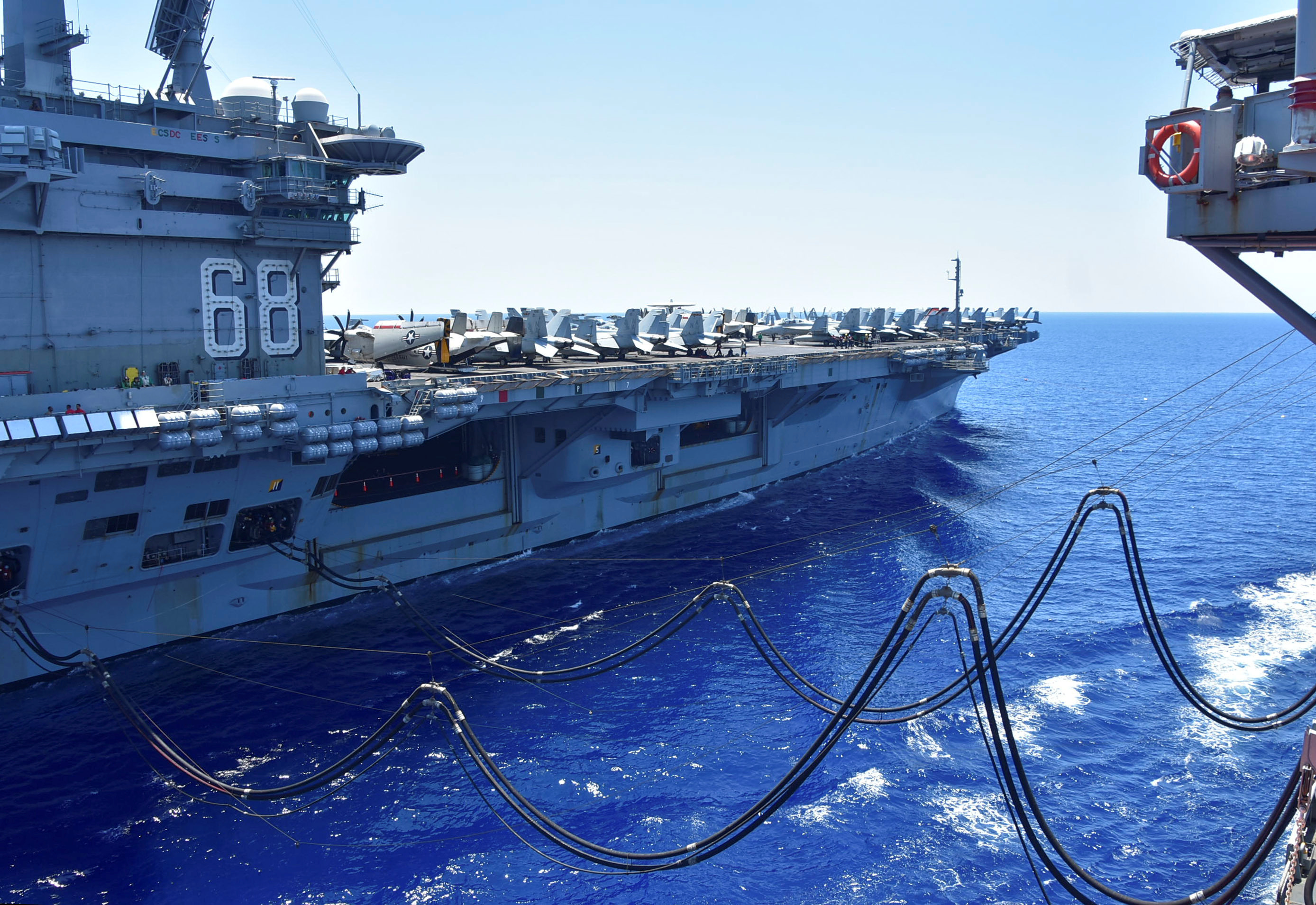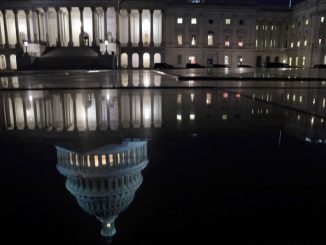
Commentary
Britain’s new aircraft carrier, the Queen Elizabeth, is almost underway. It’s currently in the dockyard of Portsmouth, on England’s south coast, taking on essential supplies: carrots, potatoes, a popcorn popper, 250 U.S. Marines, and 10 U.S. F35-B lightning jets (outnumbering Britain’s own such jets onboard).
The carrier will travel 26,000 nautical miles, and traverse the South China Sea. Skipping past the sensitive Taiwan Strait, it will head toward Japan, perhaps for some rest and recuperation. Along for the ride are a U.S. destroyer and Dutch frigate. Perhaps the transit is an attempt to show strength in the South China Sea. But that’s junior league compared to the defense of Taiwan. A British and allied transit of the Strait would be truly impressive.
The last time an allied carrier transited the Strait was in 2005. That’s over fifteen years ago. Do you smell fear? I do.
Showing it in the face of Beijing and Moscow is a dangerous thing. When the Truman administration ruled Taiwan and South Korea out of America’s security perimeter, the U.S. Navy was withdrawn from the Strait. The Soviets and Chinese took this as a green light for territorial aggression, and the communists lurched forward on the Korean peninsula in 1950. Oops.
Truman changed his mind and defended South Korea, at the cost of at least 2.5 million lives. He commanded the 7th Fleet to defend Taiwan. President Eisenhower, after the war, inked mutual defense treaties with both countries. Truman signed one with the Philippines in 1951. That was when America showed commitment to its Asian allies.
Then about 20 years later, President Nixon (and his academic sidekick Henry Kissinger), apparently forgot about the Korean War and decided it would be a good idea to befriend Communist China in order to use it against the Soviets. What a hair-brained scheme.
The price according to Mao Zedong? Removal of carriers from the Taiwan Strait, among other things. Nixon, with all of Kissinger’s wisdom, complied. China never followed through with a strong position against the Soviets. In fact, when the Soviet Union fell apart in 1991, China sought to fill Soviet shoes geopolitically.
They were kid shoes. China in 1995 acted like a spoiled child by firing missiles at Taiwan as a protest against a Taiwan presidential visit to Cornell University. President Clinton responded with the USS Nimitz, a carrier, which transited the Strait.

China again fired missiles at Taiwan, and Clinton again sought to use the carrier as a tool of statecraft. But this time he sent two carriers toward the Strait. China threatened a “sea of fire,” Clinton got cold feet, and the two carriers stayed out. Fear has a nasty way of emboldening the enemy. China was growing up into a monster. You would think that 1995 would have been a good time to stop trading with the enemy, if not earlier (say, June 4, 1989?).
Only in 2005 did America revive its gumption, under President George W. Bush, to send the USS Kitty Hawk carrier through the Strait. There was no sea of fire. Beijing predictably protested. The head of the U.S. Pacific Command replied, “We don’t need China’s permission to go through the Taiwan Strait. We will exercise our free right of passage whenever we need to—correct that—whenever we choose to.”
But since then, no U.S. or allied carrier has made the trip. In a sign that power is shifting in the region, Chinese carriers have transited the Strait, and more. They almost daily send fighter jets towards Taiwan air space, forcing the small democratic country to scramble its own jets at great cost to itself (and great profit to the American aerospace industry).
The Trump administration considered sending a carrier through the Strait, but reportedly didn’t want to “provoke” Beijing while its trade deal was under consideration. There’s always a trade consideration.
The enduring American “strategy” on China seems to be, ‘keep backing away from our allies in Asia, so we can keep trading with China, except when our allies are buying weapons, which is money, so we can’t say no to that.’ The priority is money not principle. Democracy is getting thrown under the bus by our corporations.
According to China expert Joseph Bosco, “In the past seven years, China has made more carrier Strait transits than the U.S. has in half a century. … China measures the depth of an adversary’s resolve in millimeters, and may question Washington’s will to confront it in a potential conflict situation when it is manifestly reluctant to make a perfectly legal passage in peacetime.” Bosco notes that only two U.S. carrier transits in about 50 years “could help explain why China believes it can succeed with its aggression against Taiwan.”
The United States must more thoroughly commit to supporting small democratic countries like Taiwan when they are under threat from hegemonic powers of the illiberal variety. Draw red lines around democracy. Defend them with your life and honor. The strategy is simple.
Else, how can we continue to call ourselves the “land of the free and the home of the brave?” And, who will be left to defend us, when all our allies are gone?
Anders Corr has a BA/MA in political science from Yale University (2001) and a Ph.D. in government from Harvard University (2008). He is a Principal at Corr Analytics Inc., Publisher of the Journal of Political Risk, and has conducted extensive research in North America, Europe, and Asia. He authored “The Concentration of Power” (forthcoming 2021) and “No Trespassing,” and edited “Great Powers, Grand Strategies.”
Views expressed in this article are the opinions of the author and do not necessarily reflect the views of The Epoch Times.





Be the first to comment